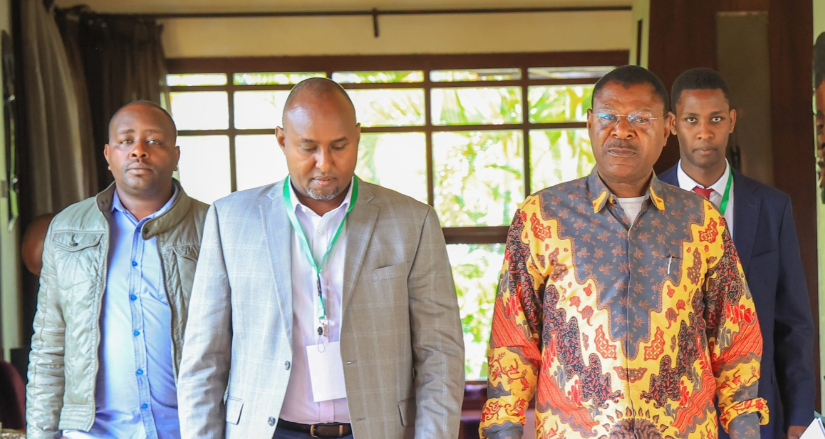
National Assembly Speaker Moses Wetang’ula has warned committee chairpersons and vice-chairpersons who repeatedly miss House sessions.
Speaking at the National Assembly leadership retreat in Naivasha, Wetang'ula warned that such leaders risk losing their leadership roles.
Wetang’ula emphasised the importance of consistent attendance, particularly for those entrusted with leading the legislature’s committees.
He noted that committee chairs are critical links between the National Assembly and the Executive.
“You are the primary point of contact and oversight for Cabinet interactions. Cabinet members appear before you and the plenary, and you must engage with them beyond the questions posed on the floor," Wetang’ula said.
“If you are absent, you are not only missing out on discussions but also failing to fulfill your leadership responsibilities,” he said.
Wetang'ula emphasised the importance of accountability, raising concern that some leaders only appear briefly to sign attendance or make a quick appearance.
“This should not be the case. We must commit fully to leading our committees effectively,” he said.
Present during the retreat include Majority Leader Kimani Ichung’wah and Minority Leader Junet Mohamed,
Wetang’ula underscored the need for quorate meetings, noting that committee chairs must maintain consistent participation, given the privileges and additional compensation their positions accord.
He also addressed the procedural implications of absenteeism, explaining that parliamentary standing orders do not require a fixed debate duration for bills.
This flexibility, he noted, is granted with the expectation that committee leaders will be present and actively engaged to expedite House business.
He further explained that the quality of legislation is grounded not only in the debate on the House floor but in the comprehensive work of committees, examining bills, conducting public consultations, and interrogating proposals.
"Committee chairs must be diligent in these duties to ensure timely, effective law-making,” Wetang’ula warned.
According to Wetang'ula, any Bill, motion, or petition scheduled for debate would be set aside if the chairperson or sponsoring member is absent without prior notification or arrangements for another member to stand in.
This measure, he clarified, aims to ensure accountability and streamline legislative business, reducing delays caused by absentee members.
Expressing frustration over frequent postponements of key legislation due to absenteeism, Wetang’ula announced that members’ proposals could be dropped if they fail to appear after repeated calls.
“If a member cannot prioritise their Bill or motion, it may be time to reconsider its place on the Order Paper,” he said.
Ichung’wah echoed Wetangula's sentiments, urging committee chairs to make themselves available during core House hours, particularly between 2:30 pm and 4:00 pm, when fewer members typically seek the floor.
“This is a prime time to advance House business, present reports, and process essential documents,” Ichung'wah advised.
In his closing, Wetang’ula reiterated the need for an engaged, accountable National Assembly, calling on members to uphold their responsibilities to the House and their constituents.

